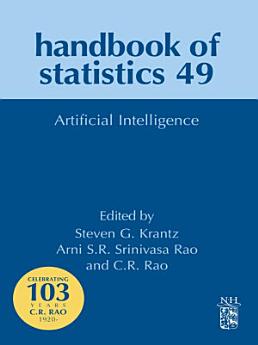Artificial Intelligence
Über dieses E-Book
Autoren-Profil
Arni S.R. Srinivasa Rao works in pure mathematics, applied mathematics, probability, and artificial intelligence and applications in medicine. He is a Professor at the Medical College of Georgia, Augusta University, U.S.A, and the Director of the Laboratory for Theory and Mathematical Modeling housed within the Division of Infectious Diseases, Medical College of Georgia, Augusta, U.S.A. Previously, Dr. Rao conducted research and/or taught at Mathematical Institute, University of Oxford (2003, 2005-07), Indian Statistical Institute (1998-2002, 2006-2012), Indian Institute of Science (2002-04), University of Guelph (2004-06). Until 2012, Dr. Rao held a permanent faculty position at the Indian Statistical Institute. He has won the Heiwa-Nakajima Award (Japan) and Fast Track Young Scientists Fellowship in Mathematical Sciences (DST, New Delhi). Dr. Rao also proved a major theorem in stationary population models, such as, Rao's Partition Theorem in Populations, Rao-Carey Theorem in stationary populations, and developed mathematical modeling-based policies for the spread of diseases like HIV, H5N1, COVID-19, etc. He developed a new set of network models for understanding avian pathogen biology on grid graphs (these were called chicken walk models), AI Models for COVID-19 and received wide coverage in the science media. Recently, he developed concepts such as “Exact Deep Learning Machines, and “Multilevel Contours within a bundle of Complex Number Planes.
Prof. Steven G. Krantz works at the Department of Mathematics, Washington University, St. Louis, Missouri, United States.











